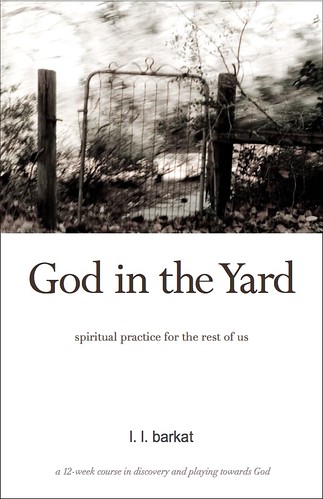Beyond Helplessness: Steps Against Poverty

On Sunday, our church did an interesting exercise in discernment. We each received a card, then wrote what we thought God might be saying to our church, how we should be spending our time and resources. Then we shared these cards with the people sitting next to us. And the ushers collected all the cards, for the elders and deacons to look at.
My card said that we should care for the voiceless through structural and organizational approaches— living simply, taking care of creation, influencing policy. The woman next to me shared her card. It said we should care for the imprisoned and the ill.
We discussed that a comprehensive solution is needed, when it comes to the issue of the voiceless, the needy: prevention, intervention, and care. In essence, we agreed that we both have similar goals, though we each have interest and expertise in a different aspect of the solution. Clearly, I'm more the organizational type, not the nurse and the nurturer.
That's why, if I had it to do over again, I might choose to be an economist. They influence policy. Then I could say things like this, from Joseph Stiglitz...
In my years at the World Bank, I came to understand why there was such discontent with the way globalization was proceeding. Though development was possible, it was clear that it was not inevitable. I had seen countries where poverty was increasing rather than decreasing, and I had seen what that meant— not just in statistics but in the lives of the people. (Making Globalization Work)
Or I could write (and people might even pay attention) a book like The End of Poverty by Jeffrey Sachs, and open it by saying, as he did...
This book is about ending poverty in our time. It is not a forecast. I am not predicting what will happen, only explaining what can happen.
I might argue with myself by also hanging out with the impressive group that put together Alternatives to Economic Globalization. This group advocates for anti-globalization, strongly urging a local economy approach as the more compassionate and effective way to eradicate poverty.
But I am just me. I'm probably never going to be an economist. The odds predict that. Still, I can read and I can think about the implications of these various approaches to issues of poverty.
And I can live my life simply, care for my environment, consider whether genetic engineering of something as critical as wheat is wise and ultimately helpful or harmful to the poor (and put my little grocery dollars towards or away from genetically-engineered foods... oh the power of the grocery shopper!)
I can write. That I can certainly do. I can promote a book like Harvest of Hope: Stories of Life-Changing Gifts, that shows we needn't be helpless in the face of poverty (There are things I can do. There are things you can do. Even small things that make a big difference.)
As Bono has said, in the introduction to Sachs' book, We can be the generation that no longer accepts that an accident of latitude determines whether a child lives or dies— but will we be that generation?
I like the way he puts that. We are in this together. Some of us are prevention people, some intervention people, some care givers. I've found my place, begun to accept who I am. It took time. It is still in progress even. What kind of place is yours?
LL and Little-One Walking in MontMarte photo, by L.L. Barkat.
RELATED:
The High Calling's Blog Action Day is Coming
LL's We're in This Together
Laure's simple yet profound poem
Ann's moving I Repent
Ruth's practical Blog Action Day

A NOTE OF PRAISE:
LL's Homecoming, for my baby niece
Labels: globalization, Harvest of Hope, Making Globalization Work, poverty, The End of Poverty














